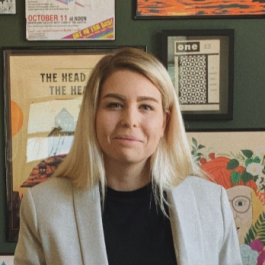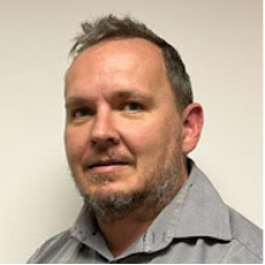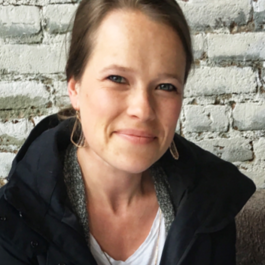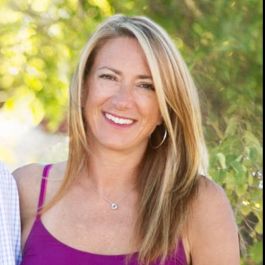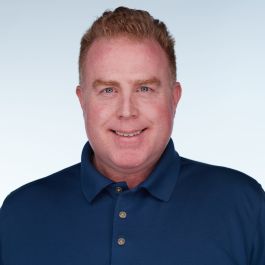Sometimes, the best way to grow as a customer success professional is to be “thrown into the fire.”
That’s what happened to Caleb Friginal, a North America lead for PureSpectrum’s customer success division, when he was tasked with training what was the company’s biggest client at the time. The undertaking required him to deliver several training sessions to accommodate individuals spread across multiple time zones, and in the end, the stress was worth it.
“It forced me to learn quickly, adapt on the fly and ultimately built my confidence for future high-stakes projects,” Friginal said.
Having the opportunity to take on large-scale projects like this one has enabled him to acquire new skills and strengthen existing ones. Peter Thomson has had a similar experience while working as a technical engineer for Altium’s customer success team, where collaboration plays a key role in team members’ day-to-day work.
During a recent cross-functional project, he worked closely with the company’s product and engineering teams, deepening his technical acumen and ability to translate complex concepts into actionable strategies for clients. Projects like this one, along with access to internal training sessions and workshops, have enabled Thomson to evolve throughout his time at Altium.
“These opportunities demonstrate how the organization empowers me to continuously improve, adapt and deliver greater value to our customers,” he said.
Thriving as a customer success professional revolves around knowing how to work with others, especially clients. That’s why Andrew Heister, a customer success manager at Vertafore, recommends that individuals interested in joining his team embrace a people-first mindset.
“To stand out in this field, focus on being relational,” he said. “Build trust, show empathy, ask good questions and really listen to what your customers need.”
Below, Friginal, Thomson, Heister and customer success professionals from eight other companies share the skills they rely on most in their day-to-day work, how their employers help them grow and their advice for CS job seekers who are interested in joining their teams.
Featured Companies
Toast provides a single platform of SaaS products and financial technology solutions to help restaurants and retailers run smoothly.
What core skills do you rely on most in your customer success role?
In customer success, clear communication and adaptability are must-haves. No two customers are alike, so every interaction calls for a tailored approach built on top of proven systems. Given that our team is based on point-in-time interactions, we have a set window to drive real impact and engage thoughtfully. Asking probing questions, leaving space for our customers and strategizing along the way are meaningful parts of this role.
Trust grows when we meet customers where they are, actively listen to their core goals and respond with insight. By setting expectations early, breaking down barriers and diving in alongside them, we spark meaningful conversations that drive outcomes. It’s not just about solving today’s problem; it’s about delivering support that feels intentional, impactful and personalized, so customers leave every interaction feeling heard and confident in their next steps.
“It’s not just about solving today’s problem; it’s about delivering support that feels intentional, impactful and personalized, so customers leave every interaction feeling heard and confident in their next steps.”
How does your team, manager or employer provide opportunities for you to hone your skills or develop new skills?
At Toast, growth isn’t optional; it’s a core principle. We challenge ourselves daily to learn, adapt and push our skills further. As a manager of a customer-facing team, I’m hands-on in both coaching my team and refining how I personally handle customer inquiries and ambiguity. Staying close to the work keeps us sharp, as we’re constantly rethinking workflows to elevate the customer experience and streamline processes. We measure progress through quarterly checkpoints: celebrating wins, targeting growth areas and using feedback from every direction to raise the bar. Testing new ideas is in our DNA, and I’ve had the privilege of helping scale our CS team in impactful ways. We’re not a “set it and forget it” shop. Peer managers and leadership challenge us to experiment, measure and improve at scale. Asking, “What’s the outcome, impact, and value?” has sharpened my operational efficiency, leveled up my project management and honed my ability to tell powerful stories with data.
What advice would you give to a CS professional looking to stand out from the pack and join your team?
We seek out people who love being customer-facing and aren’t afraid to roll up their sleeves with the rest of us! The best on our team dive into the weeds with customers, communicate clearly and show up with presence, tact and empathy. Knowing your “why” really matters in this role. Motivation drives impact here, and we get creative when we’re problem-solving. Success comes from bringing fresh perspectives and diversity of thought to the table. You don’t need years in customer success to shine, but you do need curiosity, adaptability and a comfort with ambiguity. Whether your background is a decade in hospitality or a lifetime in customer-facing roles, what counts is applying your past experiences to meet the tactical needs of today. We value big thinkers who get creative, work smart, and push for outcomes that scale. Bring your ideas, your drive, and your commitment to delivering real results.
Vertafore offers insurance technology solutions that are designed to connect every point of the insurance distribution channel.
What core skills do you rely on most in your customer success role?
When leading customers or my team, I lead with trust. Success can take many forms, but it always starts with a strong foundation. Once relationships are built, I focus on decision-making by setting clear goals and achievable outcomes, supported by cross-team collaboration and open communication.
An example of this is our weekly team meeting. We start each week with a “This or That” series, where everyone gets engaged right away. The topics can be as lighthearted as choosing between two movie series or choosing between your favorite fried foods. This simple icebreaker helps create a trusting environment where every team member feels comfortable sharing their thoughts and opinions. That trust then carries into the rest of the meeting, allowing for open discussion of work, ideas and solutions.
How does your team, manager or employer provide opportunities for you to hone your skills or develop new skills?
Vertafore does a great job providing opportunities to grow and move forward. On my team, we focus on mentorship, product champions and ownership of work. Our mentorship program pairs team members with experienced colleagues so they can ask questions and learn from their expertise. With our product champions, everyone has a go-to person for specific areas, from release dates to new feature applications and best practices. Combining ownership of your work with growth opportunities like LinkedIn Learning, tuition reimbursement and flexible work options creates a culture where people feel supported and can do meaningful work. As a result, our team is well-prepared to help customers get the most out of Vertafore solutions and see real value.
“Combining ownership of your work with growth opportunities like LinkedIn Learning, tuition reimbursement and flexible work options creates a culture where people feel supported and can do meaningful work.”
What advice would you give to a CS professional looking to stand out from the pack and join your team?
Customer success is really about helping our customers get value and actually use the product in ways that make their work easier. To stand out in this field, focus on being relational. Build trust, show empathy, ask good questions and really listen to what your customers need. At the same time, take the initiative to learn the product inside and out so you can give helpful guidance right away. The more you can positively impact a customer’s experience, the more you become a trusted partner and a go-to person. Being proactive, communicating clearly and collaborating with other teams also makes a big difference. People who combine strong relationships, product know-how and strategic thinking are the ones who really grow and make an impact in customer success.
Altium’s software tools are designed to support printed circuit board designers, part suppliers and manufacturers, enabling them to develop and manufacture electronics faster and more efficiently.
What core skills do you rely on most in your customer success role?
In my role as a CSM, I rely most heavily on the core skills of communication, problem-solving and relationship-building. Clear communication ensures that clients fully understand the solutions we provide and feel confident in their adoption. Problem-solving allows me to anticipate challenges, provide proactive guidance and resolve issues quickly, minimizing client disruption. Relationship-building is equally critical, as it fosters trust and long-term collaboration. For example, in a recent client onboarding, I identified gaps between their stated needs and the technical configuration they had requested. By actively listening, clarifying their priorities and working closely with our engineering team, I was able to realign the implementation to better meet their business objectives. This not only prevented delays but also strengthened the client’s confidence in our partnership. Such outcomes highlight how these core skills directly impact my ability to drive client success on a daily basis.
How does your team, manager or employer provide opportunities for you to hone your skills or develop new skills?
My team, manager and employer play an active role in creating opportunities for me to sharpen existing skills while developing new ones. Through regular one-on-one meetings, my manager provides constructive feedback and encourages me to reflect on both strengths and areas for growth. Our team culture emphasizes collaboration, which allows me to learn from peers by sharing best practices and observing different approaches to client engagement. Additionally, the company invests in structured development opportunities such as training sessions, workshops and access to industry resources, all of which help me stay up to date with emerging technologies and customer success methodologies.
A recent example was participating in a cross-functional project with the product and engineering teams. This experience not only deepened my technical knowledge of our platform but also enhanced my ability to translate complex concepts into actionable strategies for clients. These opportunities demonstrate how the organization empowers me to continuously improve, adapt and deliver greater value to our customers.
“Our team culture emphasizes collaboration, which allows me to learn from peers by sharing best practices and observing different approaches to client engagement.”
What advice would you give to a CS professional looking to stand out from the pack and join your team?
My advice to a CS professional who wants to stand out and join our team is to focus on cultivating both technical acumen and strong relationship-building skills. Success in this role requires the ability to deeply understand client needs, translate them into actionable solutions and communicate with clarity and empathy. Demonstrating curiosity about our product and the industry, while also being proactive in problem-solving, shows a candidate’s commitment to delivering value beyond expectations.
Another differentiator is adaptability; customers’ priorities evolve rapidly, so the ability to remain flexible and solution-oriented is crucial. For example, professionals who actively listen, anticipate challenges before they escalate and propose innovative approaches create memorable client experiences that foster trust and loyalty. Finally, I would advise candidates to showcase a mindset of continuous learning. Those who are eager to grow, open to feedback and willing to collaborate across teams not only succeed individually but also elevate the collective performance of the organization.
PureSpectrum’s market research and insights platform is designed to streamline the online survey process.
What core skills do you rely on most in your customer success role?
There are many core skills I’ve developed as a customer success manager — platform expertise, process management, and data analysis, to name a few — but the one I rely on most is communication. A big part of my role is speaking with clients over the phone to understand their challenges and show them how to get the most out of our technology. That means balancing active listening with clear, straightforward explanations.
For example, I once went into a training session planning to walk a client through some of our more complex features. But as I listened to them share past frustrations with complicated tools, I adjusted on the spot. Instead of diving into advanced functionality, I focused on showing them the simplest, most effective way to set up a project using our platform. That flexibility in communication helped build trust and ensured the training actually met their needs.
How does your team, manager or employer provide opportunities for you to hone your skills or develop new skills?
My employer and team have done a great job putting me in situations that push me to grow, both by developing new skills and sharpening existing ones. One example that stands out was early in the formation of our new customer success team, when I was asked to train what was then our largest client. The client’s project management team was large and spread across multiple time zones, so I had to coordinate and deliver several training sessions to different groups. At the time, it felt like being thrown into the fire, but looking back, I’m grateful I was trusted with such a major opportunity. It forced me to learn quickly, adapt on the fly and ultimately built my confidence for future high-stakes projects.
What advice would you give to a CS professional looking to stand out from the pack and join your team?
My biggest advice for a CS professional is to truly learn and become an expert in the product you’re helping clients succeed with. What stands out to clients is a level of expertise and confidence that assures them their questions will be answered quickly and accurately. That depth of knowledge not only builds trust but also makes it easier to communicate effectively with all types of clients, in all kinds of situations.
JumpCloud’s platform is designed to help IT, security operations and DevOps teams control and manage employee identities and devices.
What core skills do you rely on most in your customer success role?
Product knowledge, technical proficiency and strategic planning are all essential, but I think relationship management and rapport-building is foundational. A good relationship ensures that there’s open communication with what’s working and what isn’t working; your account will let you know if there are key changes, and those changes will be more thought out rather than abrupt. The quiet accounts are often — but not always — the ones to be concerned about.
“Product knowledge, technical proficiency and strategic planning are all essential, but I think relationship management and rapport-building is foundational.”
How does your team, manager or employer provide opportunities for you to hone your skills or develop new skills?
It helps that we have a complex platform; we’re always learning! We have a lot of training, but what I think really helps is the company culture. Everyone is open to questions and helping one another with learning. That’s key. With a complex platform, you need to be supported internally to be able to support externally.
What advice would you give to a CS professional looking to stand out from the pack and join your team?
Show that you are invested by doing research on what the company does, demonstrate empathy and relationship-building with your interviewer(s) and have a curiosity about the platform or product’s customer to show you’re already thinking about that specific customer mindset.
Quantum Metric, Inc.’s digital intelligence platform enables enterprises to monitor customer journeys, identify and quantify friction points within these journeys and surface unmet customer needs.
What core skills do you rely on most in your customer success role?
In customer success business consulting, our goal is to help clients succeed by acting as true partners. My two core skills are listening and structured problem-solving, with listening being the most critical. Listening is about 60 percent of what I do and is the hardest part. Clients share a lot of information, some valuable, some not. A colleague once said our role is to listen, sort and ask, “What does this client truly need?” By listening closely, I understand their challenges, what works, what doesn’t and what they want to achieve. This helps me prioritize their needs and guide them toward areas where our platform can make the biggest difference.
The other 40 percent is structured problem-solving. After gathering information, we organize it into an approach that resonates with the client’s perspective. An engineer, an executive and a UX designer will all see a problem differently. We adapt our approach to meet each perspective and help them see the path forward. Listening unlocks deep understanding; structured problem-solving translates that into solutions. This combination creates a meaningful impact and defines the core of my team’s work.
“Listening unlocks deep understanding; structured problem-solving translates that into solutions.”
How does your team, manager or employer provide opportunities for you to hone your skills or develop new skills?
Quantum Metric offers many opportunities to develop new skills at every level, from individual contributors to leaders. Our culture values diverse teams and approaches to problem-solving, which is reflected in our learning programs. This includes mentorship. I’m a process-oriented problem-solver, and my mentor, an outside-of-the-box thinker, pushed me to be more comfortable with ambiguous client conversations. This balance made me a better consultant, and our mentorship program has raised the bar for the entire team. We also have dedicated weekly time for learning and development. I use this time to study how companies design and implement internal processes, which is crucial as I look toward leadership. This protected time, and the expectation to use it, reinforces that growth is a core part of our culture. Finally, we have team-based learning sessions like hackathons and weekly shares, where we present new techniques. These sessions help us build new skills and replicate client wins at scale.
What advice would you give to a CS professional looking to stand out from the pack and join your team?
If you want to stand out, signal a passion for helping others. I often meet candidates who are passionate about solving problems or digging into deep analytical work, and that’s important. However, the ones who stand out are those who marry a passion for problem-solving with a passion for helping people. It’s not just about enjoying the work for its own sake; it’s about enjoying it even more because it helps someone else succeed. On our team, the consultants who thrive are the ones who consistently put the customer’s needs first, even when they may conflict with our own. They focus on building trust and becoming true advisors. That combination of deep curiosity, love of the work and genuine care for the people they serve is what makes someone exceptional in customer success.
Hometap offers solutions that enable people to get more from homeownership so they can get more from life.
What core skills do you rely on most in your customer success role?
The core skills I rely on most as a homeowner experience manager are a blend of active listening, empathy, proactive communication and my years of experience in sales at Hometap. Our homeowners are often navigating a challenging financial journey, so the ability to actively listen and truly understand their situation is crucial. My support team and I pair these traits with a proactive approach to communication. This means we don’t just react to their questions; we anticipate them. To prevent confusion or misunderstanding before it starts, I’ve also provided clear, step-by-step guidance via defined talk tracks and training.
“Our homeowners are often navigating a challenging financial journey, so the ability to actively listen and truly understand their situation is crucial.”
A great example of this approach is when a homeowner calls in, confused about a document request. Instead of just telling them to upload the document, a skilled homeowner success specialist would first acknowledge their frustration. Then, they’d proactively explain why that specific document is needed, what the next steps are and how that piece fits into the bigger picture of providing them with the funding they’re seeking. This combination of empathy and clarity transforms a potentially frustrating moment into a reassuring and seamless experience.
How does your team, manager or employer provide opportunities for you to hone your skills or develop new skills?
My team provides a strong foundation for learning through collaboration, our companywide Hometap University program and a deep culture of support. We hold regular weekly call reviews to share best practices and collectively solve challenges, which helps us learn from each other’s experiences. I not only coach my team on difficult conversations but also ensure they understand the “why” behind any policy or process changes.
As an employer, Hometap encourages learning through cross-functional collaboration. We have opportunities to work closely with other teams, like investment support and sales, which gives us a holistic view of the entire homeowner journey. This deepens our knowledge of the process from start to finish and helps us provide a higher level of guidance and support.
What advice would you give to a CS professional looking to stand out from the pack and join your team?
My best advice would be to fully embrace a mindset of learning and a genuine sense of empathy. The real estate and financial landscape is always changing, so being curious is essential for success. It’s also important to understand that our job is about building trust and providing peace of mind. The most successful homeowner success specialists are the ones who can anticipate a homeowner’s needs, speak in clear, straightforward language and deliver excellent service. Showing that you’re an empathetic, proactive problem-solver is what truly makes someone stand out.
Mission Cloud offers end-to-end cloud services, AI solutions and software for AWS customers.
What core skills do you rely on most in your customer success role?
In my role as a senior customer success manager, I rely most on intuition, empathy, relationship management and active listening, paired with accountability and always following through on commitments. These skills are essential in building trust and credibility with both customers and internal teams.
“I rely most on intuition, empathy, relationship management and active listening, paired with accountability and always following through on commitments.”
On a daily basis, I work with a wide range of people, from frontline managers to C-suite executives, as well as colleagues across different functions. I adapt my approach depending on who I’m engaging with, focusing on the information and priorities that matter most to them. For example, by actively listening and understanding a customer’s core key performance indicators, I can tailor conversations to ensure that we’re not only meeting immediate needs but also aligning our strategy to their long-term business goals. This ability to adapt and stay customer-focused has been key to driving strong relationships and outcomes.
How does your team, manager or employer provide opportunities for you to hone your skills or develop new skills?
At Mission Cloud, we’re held accountable for our core responsibilities, but we’re also given the freedom to apply our skills and experiences in ways that best serve the unique needs of each customer. That balance of trust and autonomy allows me to grow through real-world problem-solving. The culture at Mission is incredibly supportive, which plays a big role in both our happiness and our dedication to delivering our best work.
As a premier AWS managed services partner, AWS also provides access to a wide range of AWS courses and certifications, which Mission fully supports financially. These opportunities allow me to continuously expand my technical expertise. In addition, as a senior customer success manager, I’ve had the opportunity to mentor others on my team. This not only helps me strengthen my leadership and communication skills but also deepens my own understanding of AWS services as I guide others.
What advice would you give to a CS professional looking to stand out from the pack and join your team?
My advice is to find your niche; what makes you unique, whether it’s your approach, your life experiences or your problem-solving style. A lot of what makes a great CSM comes from who you are and what you’ve learned along the way — skills and perspectives no one else can replicate. In this role, building trust is key, so holding yourself and others accountable and always following through on commitments is essential. When customers see that you genuinely care and deliver results, that trust grows, and it sets you apart in the field.
Domino Data Lab’s enterprise machine learning operations platform is designed to accelerate the development and deployment of data science work, helping organizations develop better medicines, grow more productive crops and more.
What core skills do you rely on most in your customer success role?
In my role as a CSM, I rely the most on strategic communication, relationship-building and cross-functional collaboration. I need to understand my customer’s business goals, translate them into actionable plans and ensure internal teams like support, product and services are aligned to deliver value. For example, when a biotech customer approached us for help with a complex migration scenario, I partnered with our support and services teams to design a comprehensive solution that included coordinated workshops and delivered measurable return on investment. This skill set directly impacts my daily work; leadership regularly asks me to articulate the value our customers are realizing, and I can only do that by maintaining strong relationships and turning customer outcomes into an internal companywide story.
How does your team, manager or employer provide opportunities for you to hone your skills or develop new skills?
Domino provides tremendous opportunities for skill growth by combining autonomy with guided support. My leadership gives me room to act as a true strategic partner to customers, while offering mentorship and high-level guidance when needed. I’m regularly exposed to complex enterprise scenarios — migrations, executive business reviews and AI adoption initiatives — which help me deepen my technical and business acumen. Cross-functional collaboration with our support, product and services teams also accelerates my development. By working alongside experts to solve high-impact customer challenges, I continuously sharpen my skills in strategic communication, problem-solving and value articulation, all while learning how to orchestrate success across internal and external stakeholders.
“I’m regularly exposed to complex enterprise scenarios — migrations, executive business reviews and AI adoption initiatives — which help me deepen my technical and business acumen.”
What advice would you give to a CS professional looking to stand out from the pack and join your team?
To truly stand out as a CSM, aim to be both a trusted advisor to your customer and a strong internal advocate. Tactical execution — meeting service level agreements, coordinating upgrades and ensuring smooth operations — is just the foundation. The most impactful CSMs go beyond that, driving strategic value by translating technical capabilities into meaningful business outcomes and proactively sharing those successes with internal leadership.
Equally important is bringing personality and empathy to the role. Ask thoughtful questions, celebrate both customer and teammate wins and make every interaction enjoyable and collaborative. At your core, you are the customer’s champion and storyteller, the person who knows when they’re excelling and when they need support. And when difficult conversations arise, being a good listener and dependable teammate makes those moments far easier to navigate and often turns them into opportunities to strengthen trust.
Organizations can use Immersive’s cybersecurity training platform to teach their teams how to proactively detect, respond to and neutralize threats.
What core skills do you rely on most in your customer success role?
The core skills I rely on day to day are centered around active listening, empathy and communication. Beyond technical or industry skills, being able to open your ears and listen with the intention of helping others succeed builds strong relationships and signals your willingness to offer support. Being able to communicate across levels inside your organization and with the client is also critical. I’ve worked across a variety of solutions and industries and cannot tell you how many meetings I’ve been in where we, the vendor, do all the talking. The race to fill the air with solutions and best practices often comes before we have full understanding of the problem.
My role is primarily post-sales and my team is often eager to jump in and get clients activated, but the really good CSMs are patient and get the client talking first. That way we understand the problems they are trying to solve and the impact on the individuals we are working with. Being organized is also crucial. You can listen and react and respond with the best of them, but if you lose track of requests and/or follow-up items, your credibility erodes quickly.
How does your team, manager or employer provide opportunities for you to hone your skills or develop new skills?
We have a variety of ways to grow our skills at Immersive. Everyone has access to our Immersive One platform, where we can learn about the solutions we provide and learn more about a number of cybersecurity-related topics. As a leader, I’ve been able to both take advantage of and also point my interested team members to various Immersive-sponsored leadership development programs. We also encourage our teams to work cross-functionally, getting exposure to other roles in the company. For example, CSMs on my team collaborate on a regular basis with the product team to get a sneak peek of new features and capabilities they are building, and a chance to give feedback early. But just as importantly, it’s also an opportunity for the CSMs to hone their communication skills. In those conversations, we need to communicate the impact any product changes might have on our customers and summarize those conversations internally at an executive level. And finally, my manager is supportive of us taking chances and trying new approaches. There’s no barrier to experimentation, which gives us space to be creative and grow.
Spellman’s Advice for CS Job Seekers Eager to Stand Out
“The most exceptional individuals that I’ve hired in my long career do the following things:
- “They start strong. They ask what they can do prior to the hire date to get ramped up, they spend the first week meeting as many people as they can, they try to shadow any and all meetings they can and they are eager to be useful and impatient to make an impact.”
- “They are self-starters. They dig in and try to get things done on their own using all resources available, they find ways to shadow to get exposure and learn and they ask others in the org what it takes to be successful and use that to enhance their onboarding plan.”
- “They have an opinion and share it. They do not just nod along; instead they challenge the status quo and look for ways to make things better not just for their customers but for all the clients our teams support.”
- “They volunteer for projects. They align with tasks that lift the entire team.”
- “They ask for feedback early and often to make sure they are on track or better!”
Homebot’s platform offers homeowners personalized home finance insights and connects them with real estate professionals.
What core skills do you rely on most in your customer success role?
In customer success, relationship-building and proactive communication are everything. At Homebot, I rely heavily on empathy, strategic thinking and strong problem-solving skills to understand our clients’ goals and help them unlock the full value of the platform.
One core skill that consistently impacts my daily work is active listening. For example, during a recent check-in with one of my largest accounts, I noticed they were hesitant about integrating Homebot into their existing tech stack for their entire team. By really listening to their concerns, rather than jumping straight into solutions, I was able to identify the root issue: there was uncertainty around how Homebot would complement their CRM. This led to a collaborative working session where we mapped out exactly how the tools would integrate and support their loan officers workflows. It completely shifted the tone of the engagement, built trust and helped drive adoption across their team.
How does your team, manager or employer provide opportunities for you to hone your skills or develop new skills?
Homebot has built a culture that prioritizes continuous learning and cross-functional collaboration. Homebot is incredibly supportive of both formal and informal development, whether it’s sponsoring access to industry certifications or encouraging us to take on stretch projects. We have an annual learning and development budget that allows us to sharpen our skills in areas we want to focus on.
“Homebot is incredibly supportive of both formal and informal development, whether it’s sponsoring access to industry certifications or encouraging us to take on stretch projects.”
What advice would you give to a CS professional looking to stand out from the pack and join your team?
Be curious and come prepared to connect the dots. The most successful CSMs at Homebot aren’t just great at answering questions; they’re great at anticipating needs, educating clients and delivering value that aligns with long-term business goals.
If you’re looking to join our team, focus on developing a strong product intuition and a consultative mindset. Don’t be afraid to ask questions, dig deeper into the “why” behind a customer’s use case and challenge assumptions with tact. We’re a team that values ownership, creativity and real partnerships with our clients, so showing that you're passionate about helping people succeed and are willing to go the extra mile to make that happen will help you stand out.



